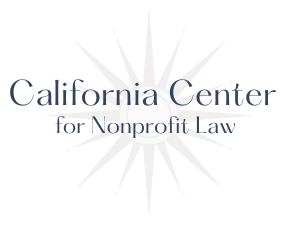
5 Things that Staff Members of Public Charities Should Know About Participating in Political Campaigns
Political campaigns can be a touchy subject for public charities, especially during election years. Charitable organizations are subject to certain restrictions on political activity if they are 501(c)(3) organizations under the Internal Revenue Code. However, individuals who head up or are employed by public charities also should be aware of the types of political campaign activities in which they can participate personally. Here are five things that staff members of public charities should know about participating in political campaigns.
Staff members should be careful to distinguish political activities from work-related ones. When endorsing or supporting political candidates, making public political comments or statements, or engaging in electioneering activities, staff members should not use the organization’s name or their job title in conjunction with their support or endorsement. Suppose a staff member is identified by name or title in public communications. In that case, they should enclose a disclaimer that is provided for “identification purposes only” and that their statements do not reflect the views of or endorsement by the organization.
Staff members should never use organizational resources to support or oppose candidates. Staff members should not engage in prohibited political activities while on the clock. They also should not use copiers, paper, computers, mailing lists, social media platforms, websites, or email addresses belonging to the charitable organization to engage in these political activities.
Staff members cannot support or oppose candidates at events sponsored by their organization. Staff members should not wear political T-shirts, buttons, hats, etc., expressing their endorsement (or disapproval) of a certain candidate or party while representing the organization at an event.
To express political opinions, staff members using personal email addresses, social media platforms, blogs, websites, etc. should include disclaimers. These disclaimers should make it clear that staff members communicate in their capacities and that their expressed views and opinions are personal, not those of the organization.
Staff members participating in political activities should refrain from wearing clothing or using items reflecting their organization. In other words, staff members should not wear a T-shirt with the charitable organization’s name on it to knock on doors and advocate for a political candidate. The danger is that others will think the staff members represent the organization rather than their personal opinions.
Call the California Center for Nonprofit Law Today
Certain social issues may come to the forefront during political campaigns that fall squarely within the purview of a charitable organization’s mission. Nonetheless, these organizations and their staff must avoid running afoul of the laws and regulations governing their involvement. If you need legal advice or assistance, we are here to help. Contact an experienced nonprofit lawyer today. Call the California Center for Nonprofit Law offices at (949) 892-1221, email us at info@NPOlawyers.com, or contact us online for more information today. We offer a wealth of experience handling the unique legal issues that charitable organizations routinely face.
